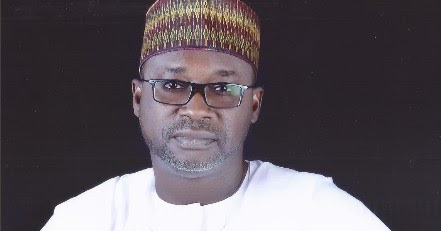Some students of the Department of Geography, Nasarawa State University, Keffi, recently visited some sites in Abuja to obtain a first-hand assessment of water and sanitation facilities.

Their mission is to understand key environmental challenges and proffer solutions to them through research.
They believe that the outcome of the research will contribute to achieving the17 Sustainable Development Goals (SDGs) before 2030, particularly the Goal 6 of the scheme.
Goal 6 of the SDGs specifically focuses on ensuring availability and sustainable management of water and sanitation for all.
The students note that this goal – ensuring sustainable water resources – is fundamental to human health, environmental sustainability and economic prosperity and must be followed seriously.
Prof. Nasiru Idris, the Head, Department of Geography in the university, said that the students visited Lower Usuma Dam Water Treatment Plant, Bwari, the National Space Research and Development Agency (NASRDA), Abuja, Wupa Wastewater Treatment Plant and Gossa Waste Dump in Abuja.
“The reason why we visited Lower Usuma Dam Water Treatment Plant is because water is life and geography is a study of space and time; it encompasses everything.
“Secondly, we visited NASRDA to know the development in Nigeria’s space; we wanted to know what they are doing with the issue of insecurity,’’ he said.
He said that they chose Wupa Wastewater Treatment Plant and Gossa Waste Dump to know more about converting wastes – solid and liquid – to wealth.
According to him, 249 postgraduate students participated in the programme, which he said was an integral part of the post graduate schemes in the institution.
He noted that the students would carry out their fieldwork in groups to enable them to suggest measures to prevent environmental problems.
During the visit, Dr Samaila Kunden, a senior lecturer in the department, identified increased population of people in Abuja as one of the factors affecting water resources.
“Water is reducing and there is need for continuous and intense monitoring of such resources to meet the demands and requirements of the ever increasing population,’’ he said.
Expressing concern about the level of water resources, Mr Agbortean Osareme, Head of Department of Reservoir and Production, Lower Usuma Dam Water Treatment Plant, said the dam usually harvested raw water from rainfall and treated it for consumption, describing its water supply to the public as safe.
One of the postgraduate students, Mr Simon Peter, however, said he would put the knowledge he acquired from the visit to improve on the environment, especially on improved water sources.
Another student, Ms Hadiza Suleiman, said the experience had given her the opportunity to witness the process of water distillation.
Mr Seidu Mohammed, the Director-General, NASRDA, also advised the students to utilise satellite technology in their research work to ensure sustainability in the management of issues on the environment.
However, one of the students, Ms Juliet Ihechukwu, expressed concern that science and technology had not been given utmost attention and called for more commitment in the sector.
At the Wupa Wastewater Treatment Plant, Mr Adamu Maina, a post-graduate student of Environmental Resources Management, said he would do his research on water-related topic for the purpose of improving methods of sourcing potable water.
Maina said that the choice of his research was influenced by his visit to Lower Usuma Dam Water Treatment Plant and Wupa Wastewater Treatment Plant.
He said: “It is very important to understand the processes of the treatment of water and liquid waste to enhance their sustainability.’’
However, Mr Ayeni Folusho, the Head of Quality Control Laboratory Wupa Wastewater Treatment Plant, informed the visiting students that the plant treated more than1, 000 cubic metres of wastewater per hour.
“The water we are treating here is a liquid waste (domestic waste water) from Abuja; we discharge it to the environment (Wupa River) after treatment because that is the concept of waste water treatment.
“Wastewater must not be discharged directly into the environment, because it will cause epidemic,’’ Folusho said.
But Mr Atiku Abubakar, an official of Abuja Environmental Protection Board, advised the students to also do research on resource recovery in waste management.
According to him, resource recovery is the collection and reuse of disposed materials such as empty beverage containers.
“The materials from which the items are made can be reprocessed into new products; I advise that the students should conduct research on the treatment of wastes to find solutions to environmental problems.
“All the things you are seeing on the dump site are resources, if they can go into research on resource recovery, they could be a good source of wealth creation,’’ he said.
The visitors, therefore, advised the Federal Government and Federal Capital Territory Authority to budget more money to maintain water and sanitation facilities across the country.
They also advised the relevant authorities to build more wastewater treatment plants across the country.
They hold the belief that if more attention is given to achieving environmental sustainability, the country can even achieve all SDGs before 2030.
By Cecilia Ologunagba, News Agency of Nigeria (NAN)
